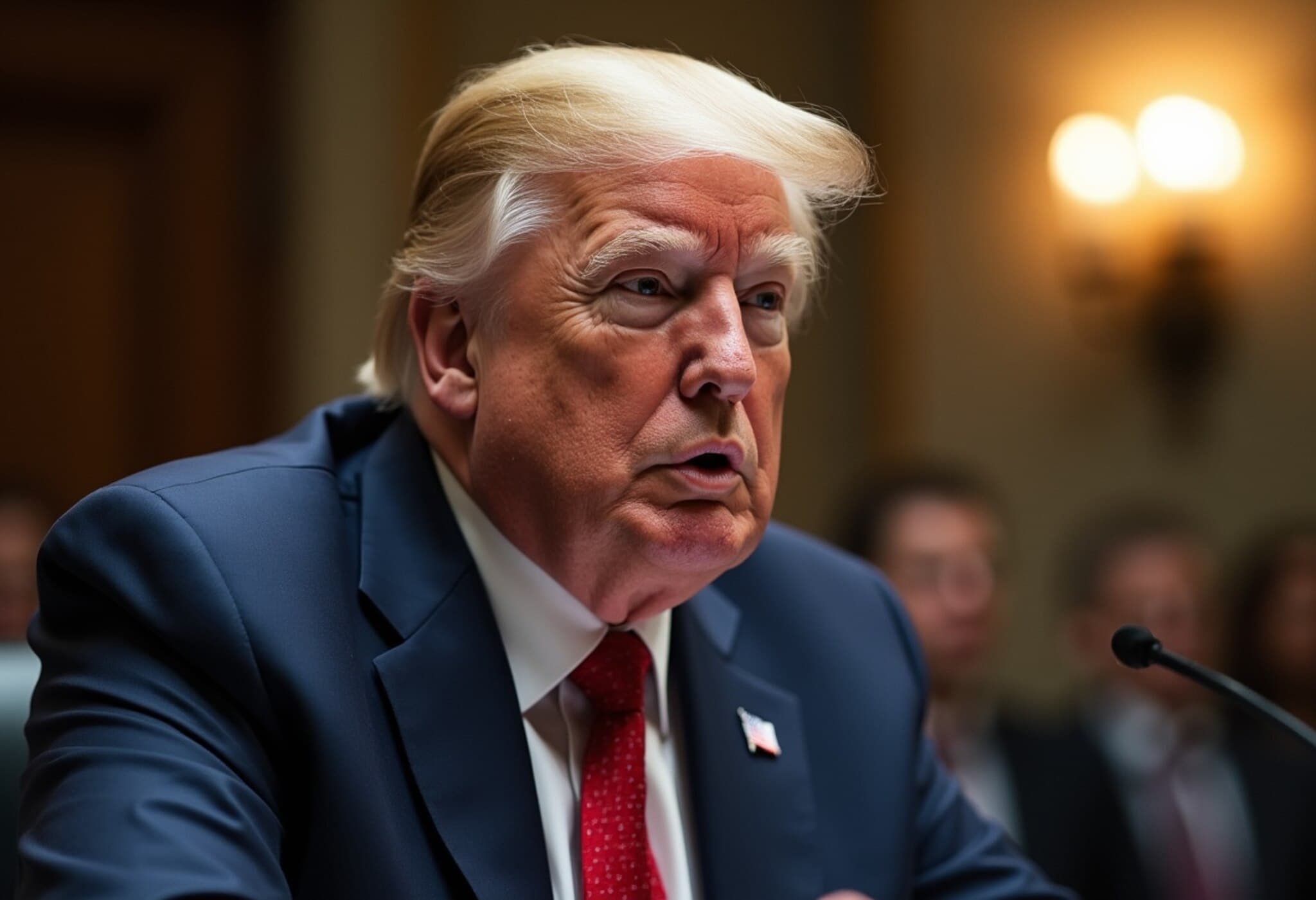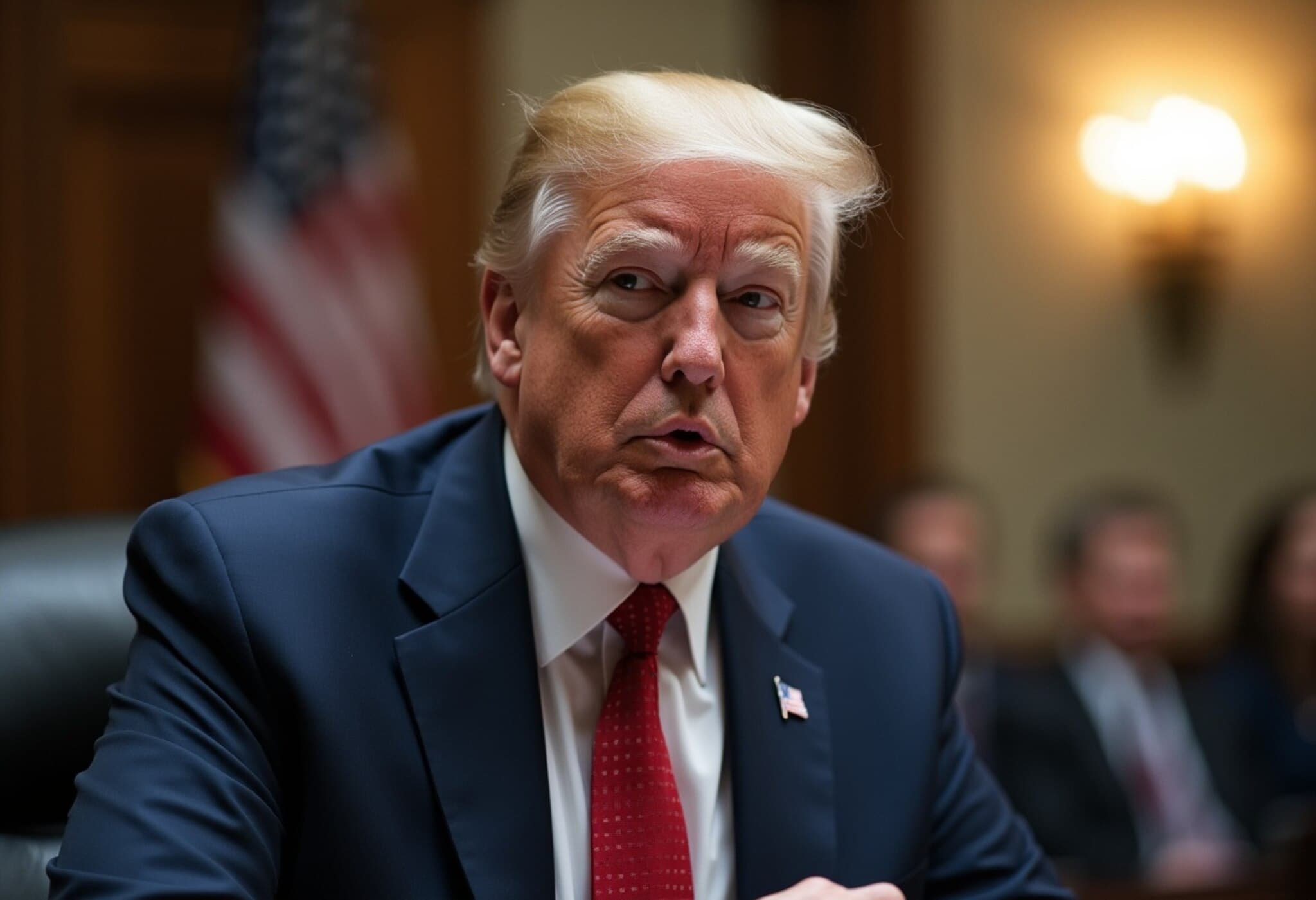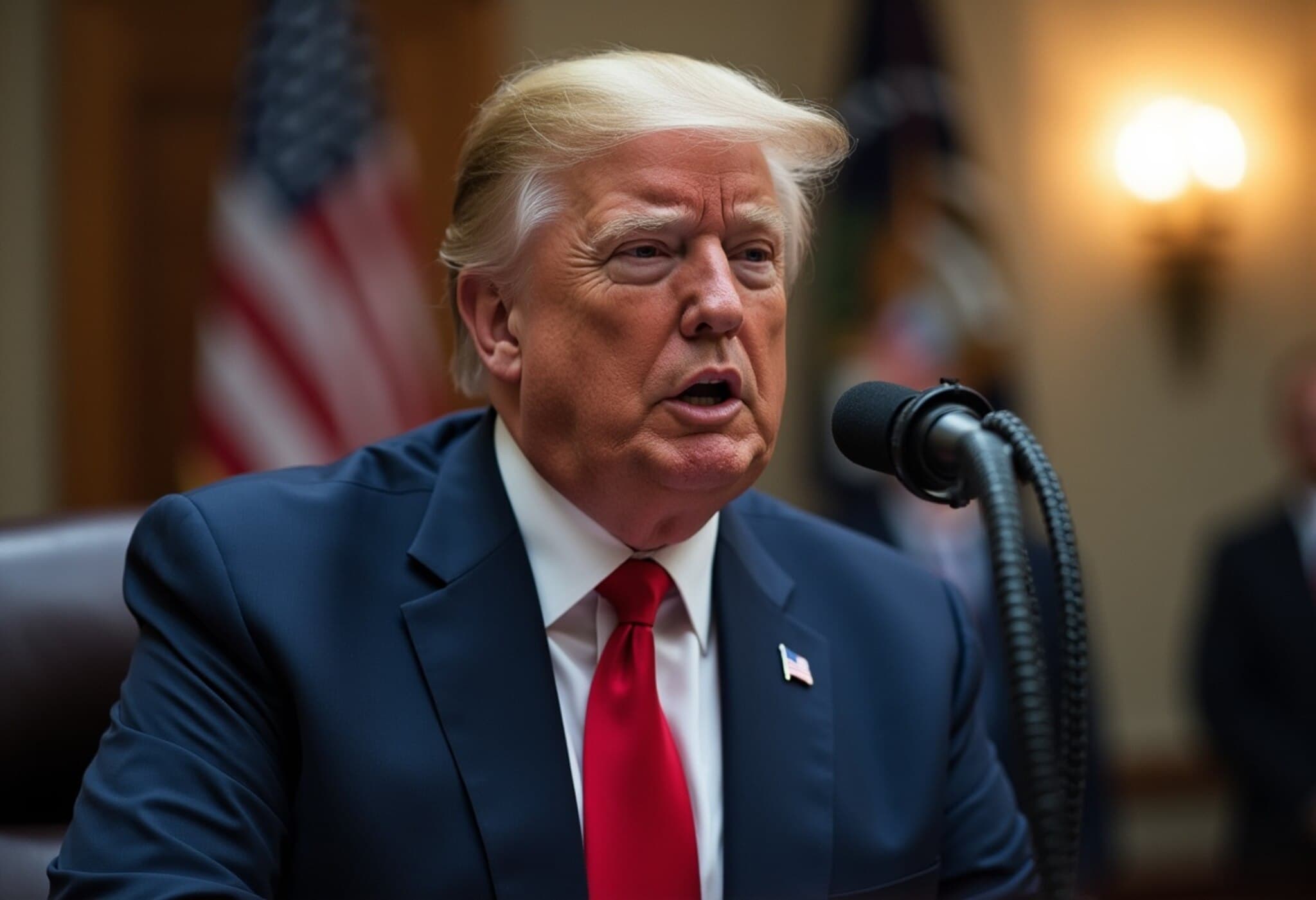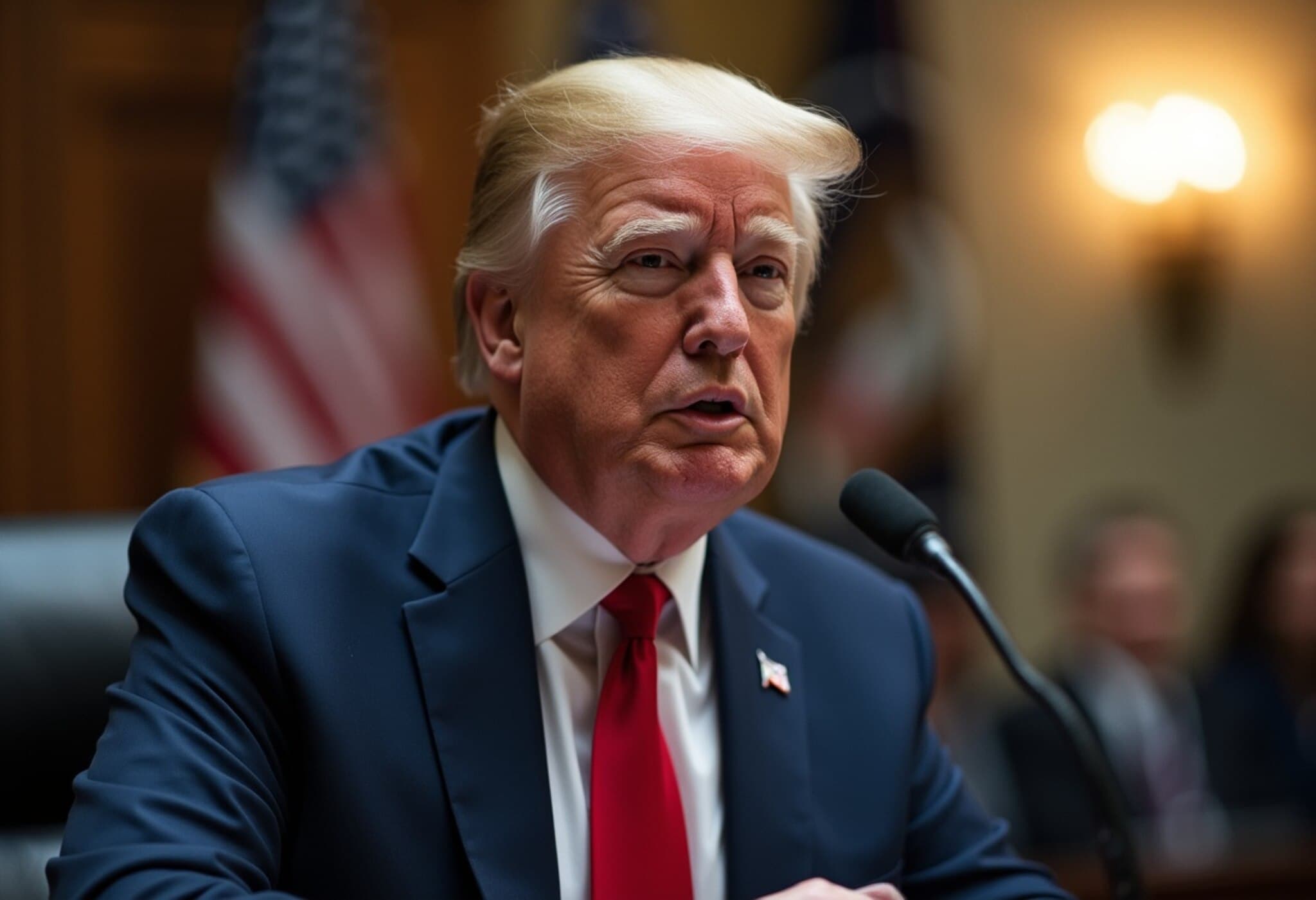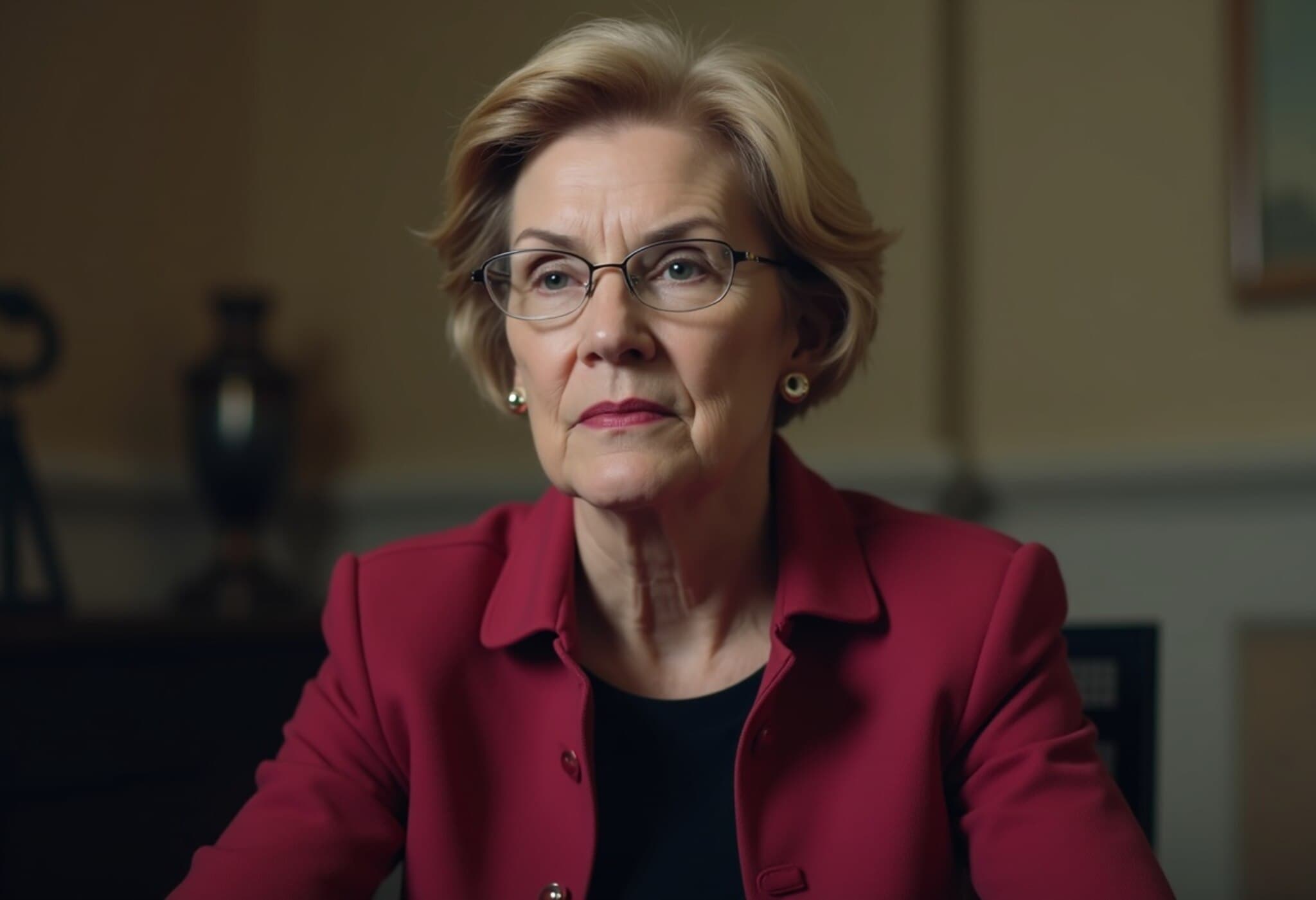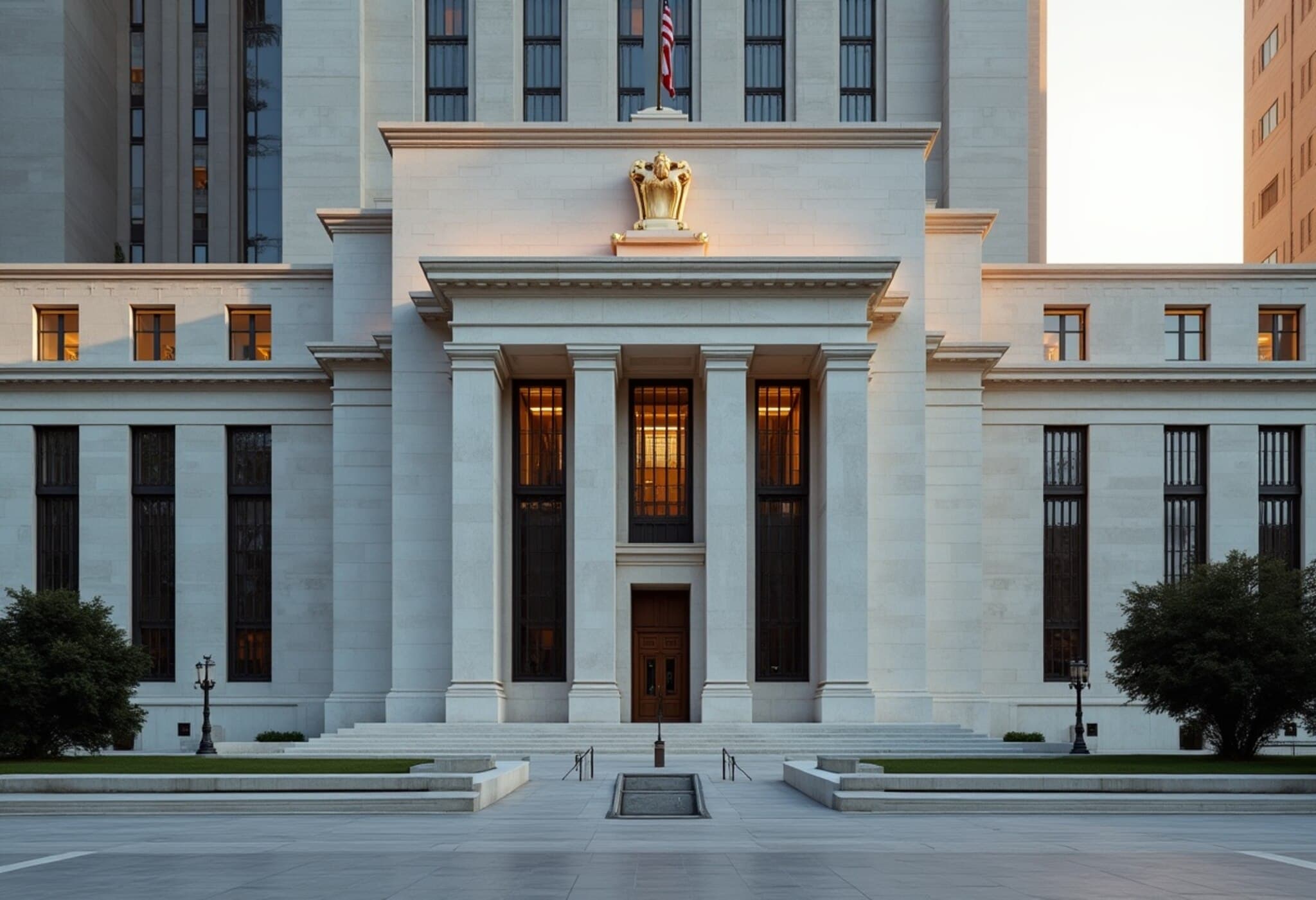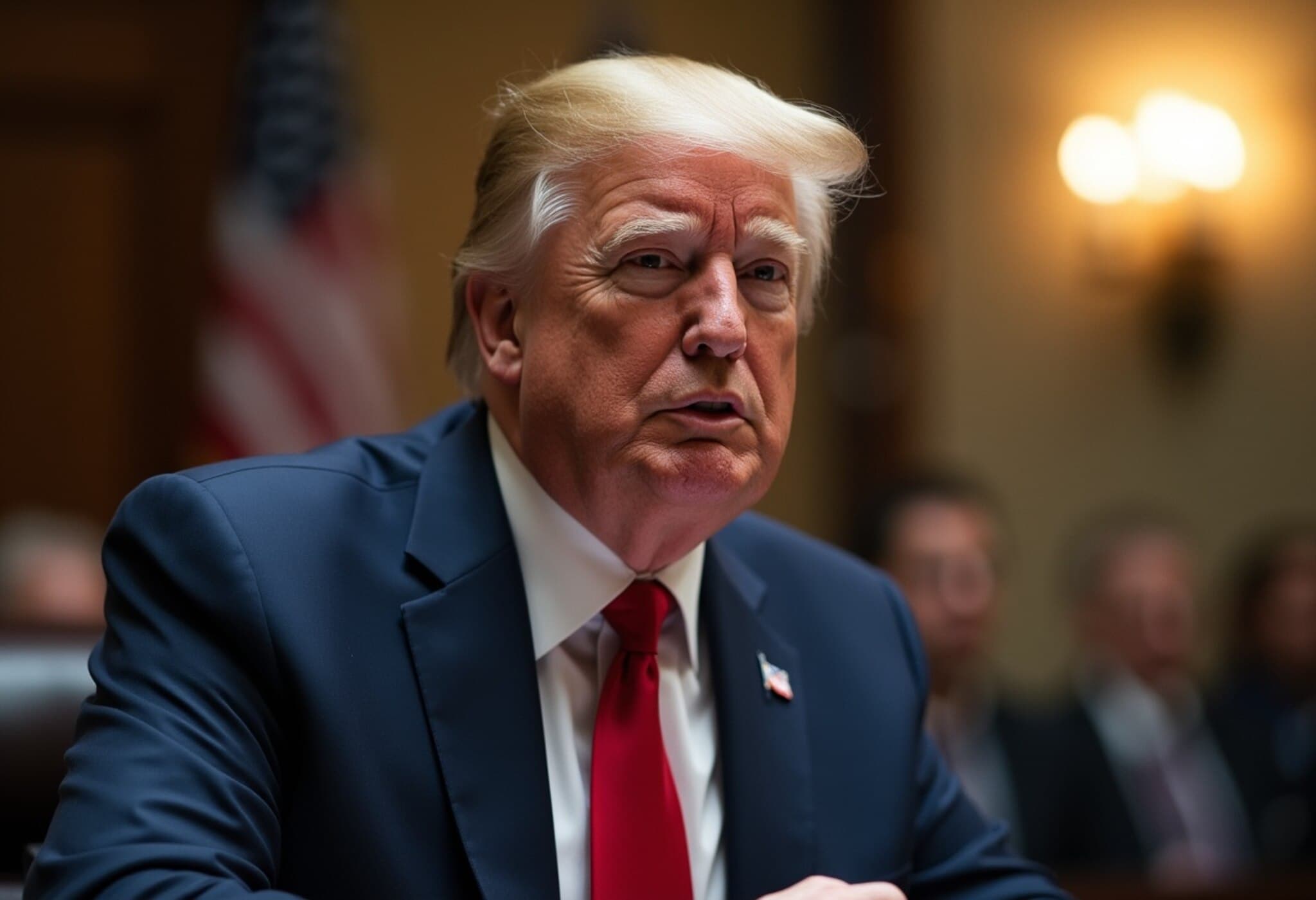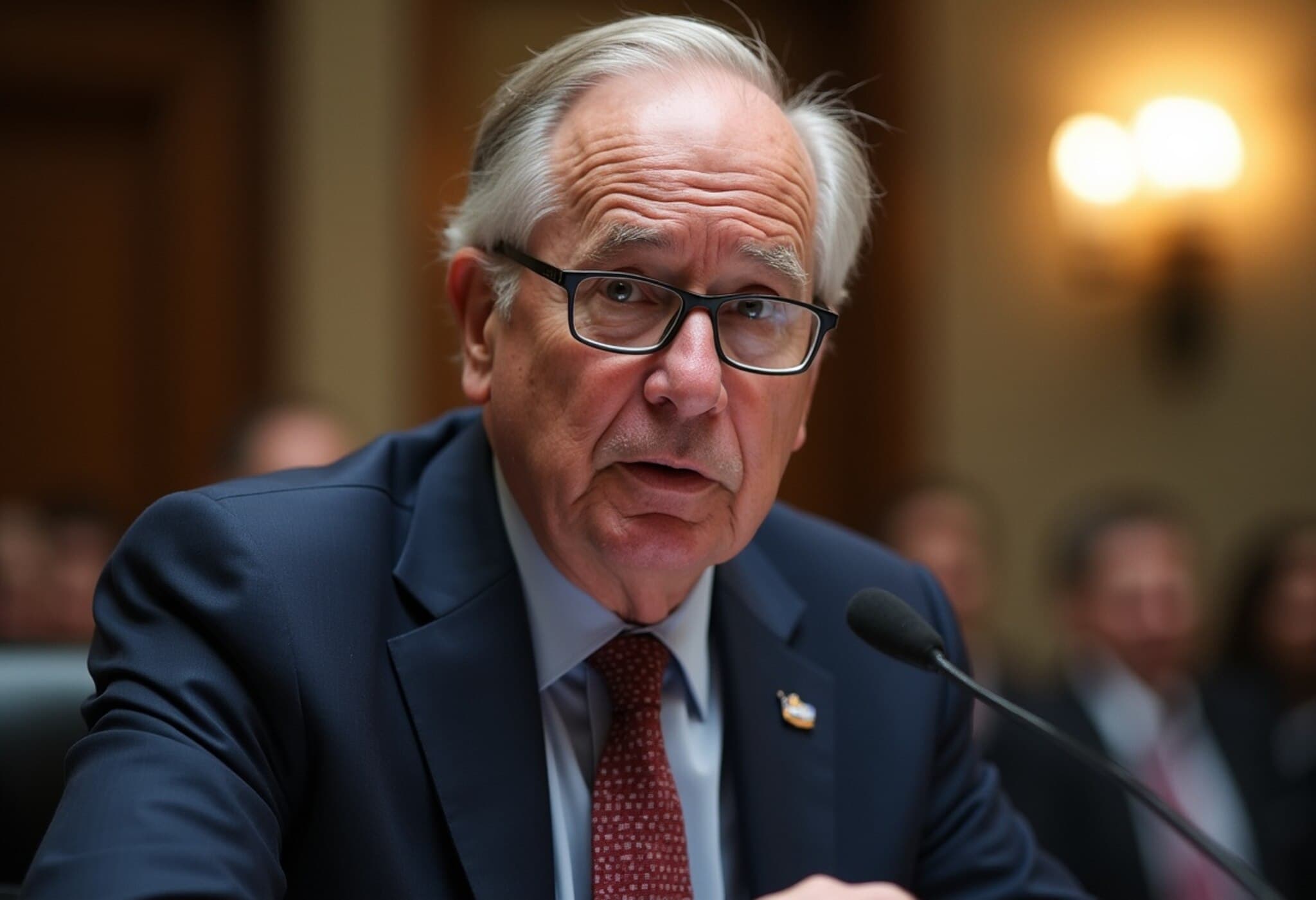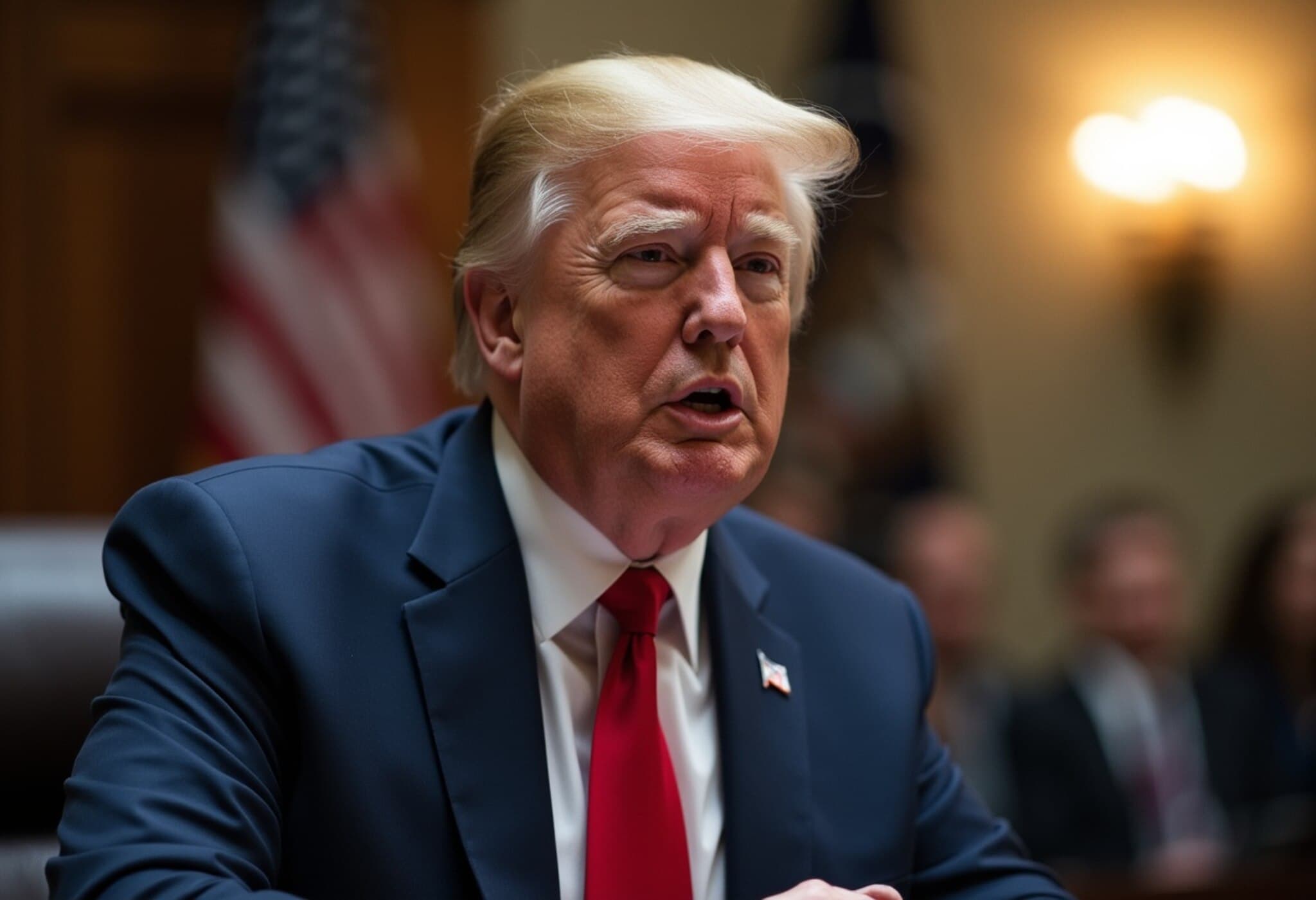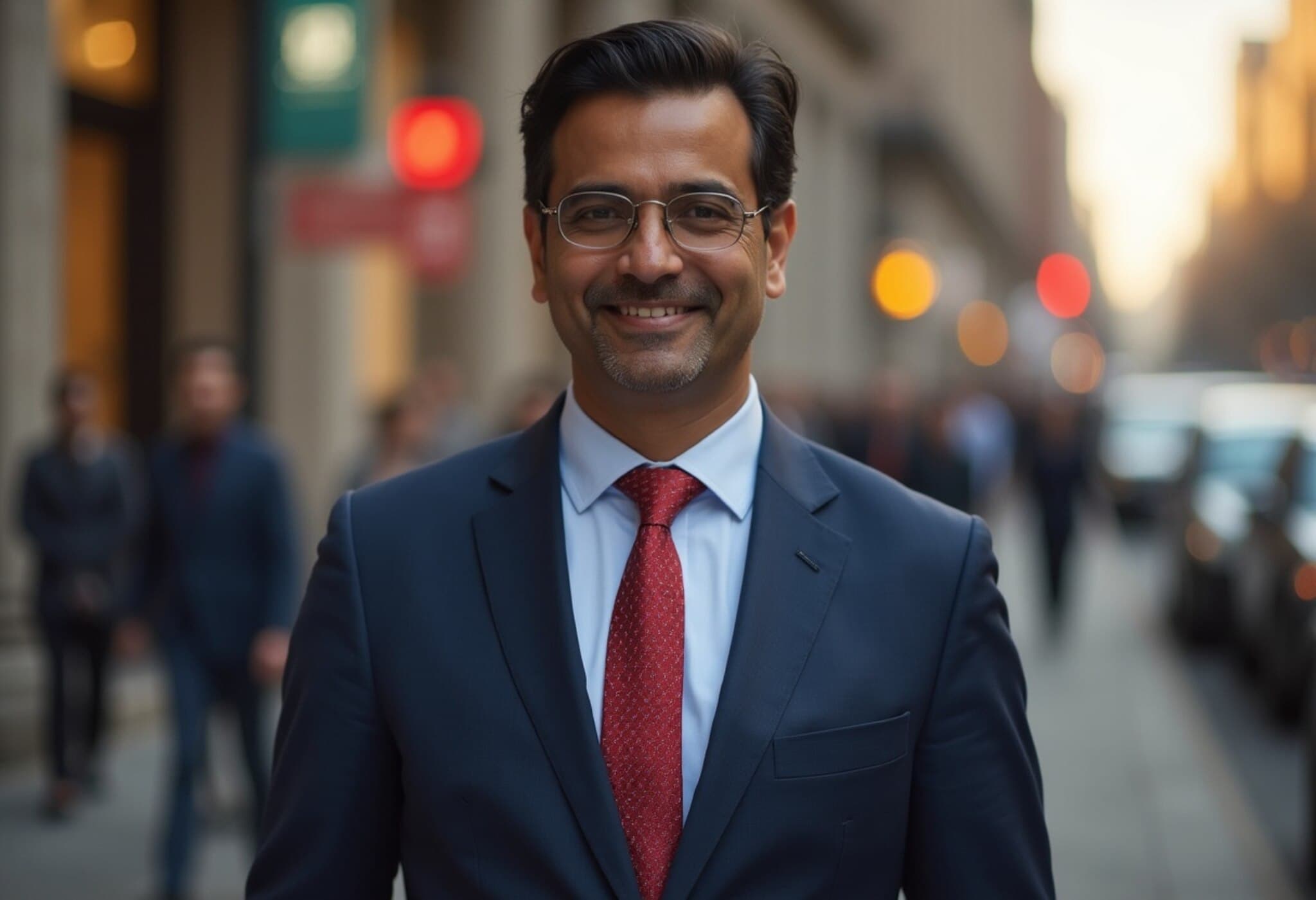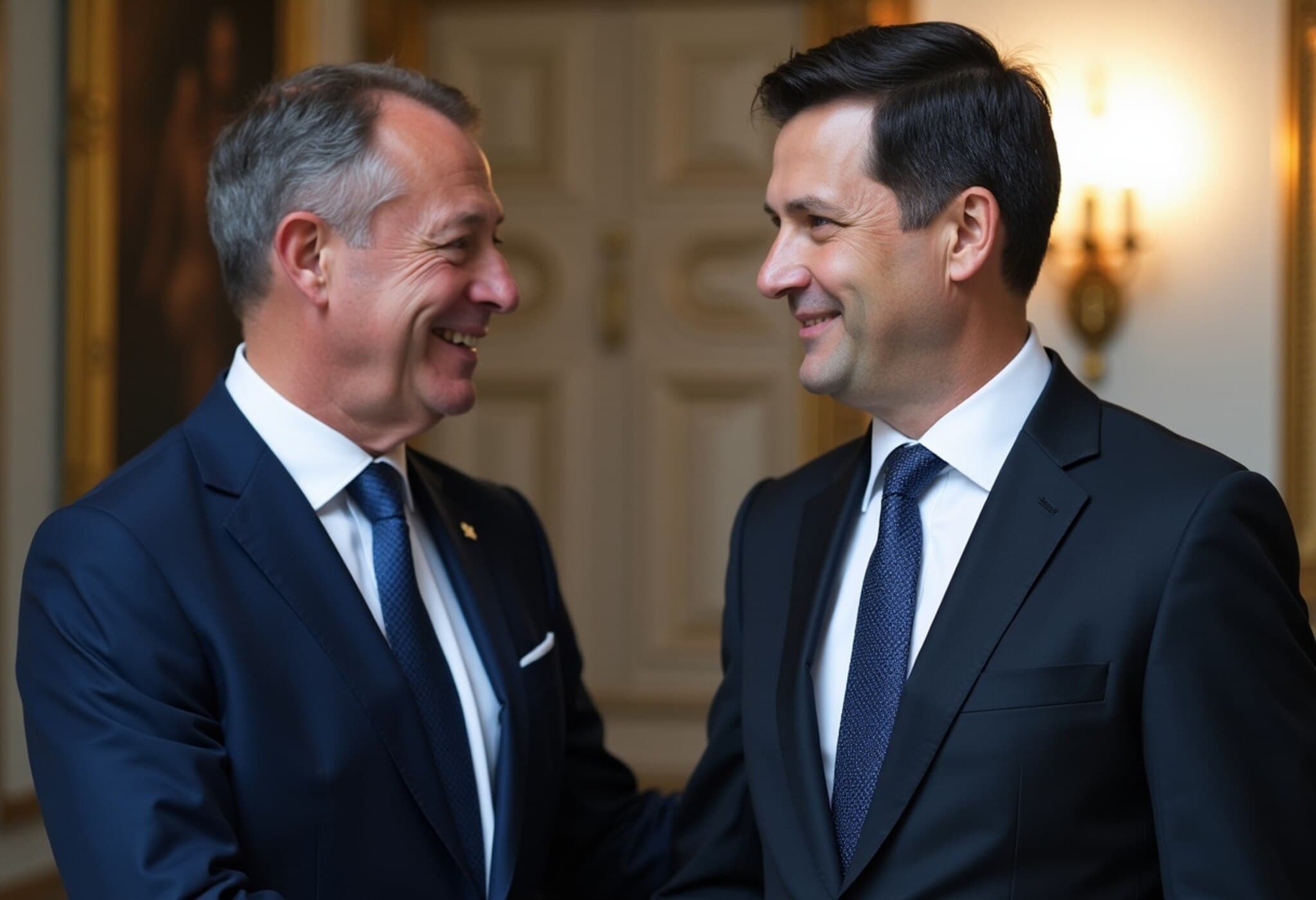Trump's Surprising Admission About Fed Chair Jerome Powell
In a striking moment that caught political observers off guard, former President Donald Trump recently expressed surprise over the appointment of Jerome Powell as Federal Reserve Chair, seemingly forgetting that he himself had appointed Powell back in 2018. The comments came during a July 16 Oval Office press interaction with the Crown Prince of Bahrain, where Trump said, “I was surprised he was appointed.”
Remembering the Appointment: Trump’s Role and Subsequent Criticism
Almost immediately, Trump appeared to recall the facts, clarifying that it was President Joe Biden who had reappointed Powell for a second term in 2021. This renewal was met with broad bipartisan support in the Senate, underscoring Powell’s prominence as a centrist figure in U.S. monetary policy. Trump stated, “I was surprised, frankly, that Biden put him in and extended him.”
This moment of forgetfulness highlights a fascinating paradox: while Trump’s administration was responsible for placing Powell at the helm of the Fed, the former president has repeatedly criticized Powell’s policy decisions during and after his tenure. Particularly, Trump has lambasted Powell for not reducing interest rates more aggressively—pointing to the European Central Bank’s actions as a favorable contrast.
Fed Policies Under Scrutiny Amid Rising Inflation Concerns
Powell has been a contentious figure throughout the recent era of fluctuating economic conditions and inflationary pressures. Trump’s frustration centers largely on perceptions that the Federal Reserve under Powell’s leadership has been slow or politically motivated in adjusting interest rates, thereby impacting economic growth and markets.
Just prior to the Oval Office remarks, Trump unleashed a harsh rebuke on social media after the Federal Reserve decided to keep interest rates unchanged for the fifth consecutive meeting. In a scathing statement, Trump labeled Powell as “Too Late,” “Too Angry,” “Too Stupid,” and “Too Political”, accusing him of costing the country trillions of dollars. He also criticized the renovation projects at the Federal Reserve headquarters, calling it one of the most incompetent or corrupt construction endeavors in history.
A Closer Look: The Complex Relationship Between Trump and Powell
The tension between Trump and Powell reflects broader challenges in the intersection of politics and central banking. Historically, Federal Reserve Chairs seek to maintain independence to ensure credible monetary policy free from political influence. Trump’s public confrontations with Powell suggest an ongoing struggle over this principle.
Interestingly, even amid stark disagreements, Trump and Powell recently met at the Federal Reserve headquarters for what appeared to be a cordial review of the building’s renovations. This juxtaposition—a friendly meeting shadowed by sharp public criticism—illustrates the complex dynamic between a former president and the central banker he once entrusted with the nation's monetary policy.
Contextual Insight: Implications for U.S. Economic Policy and Markets
Powell’s tenure coincided with an unprecedented era of economic upheaval: recovering from a global pandemic, navigating supply chain disruptions, and coping with surging inflation. The Federal Reserve’s cautious approach to interest rates aims to balance preventing runaway inflation without triggering a sharp recession.
Trump’s criticism, meanwhile, taps into a broader political narrative where monetary policy often becomes a focal point for discontent with economic conditions. Yet, experts emphasize that central bank independence is crucial for maintaining long-term economic stability—especially in a highly politicized environment.
What This Means Moving Forward
- Political memory lapses: Trump’s apparent amnesia over appointing Powell hints at deeper political strategies or personal frustrations.
- Federal Reserve independence: The episode shines light on ongoing debates about the Fed’s autonomy from political pressures.
- Market perception: Public disputes between political leaders and central bankers can fuel uncertainty in financial markets.
- Future appointments: The bipartisan support Powell enjoys may set a precedent for future Fed Chairs amid increasing polarization.
Editor's Note
This episode offers a revealing glimpse into the complex interplay between U.S. monetary policy and partisan politics. While President Trump’s surprise over Powell’s appointment might come off as a gaffe, it underscores the emotional and political turbulence currently shaping economic discourse in America. As inflation concerns persist and the Federal Reserve continues to navigate uncharted economic waters, how will political leaders influence, challenge, or respect the Fed’s independence? This question remains pivotal for America's financial future.
Understanding these dynamics is essential not only for policymakers and investors but also for everyday Americans keen on how decisions made in Washington ripple through their wallets and livelihoods.

